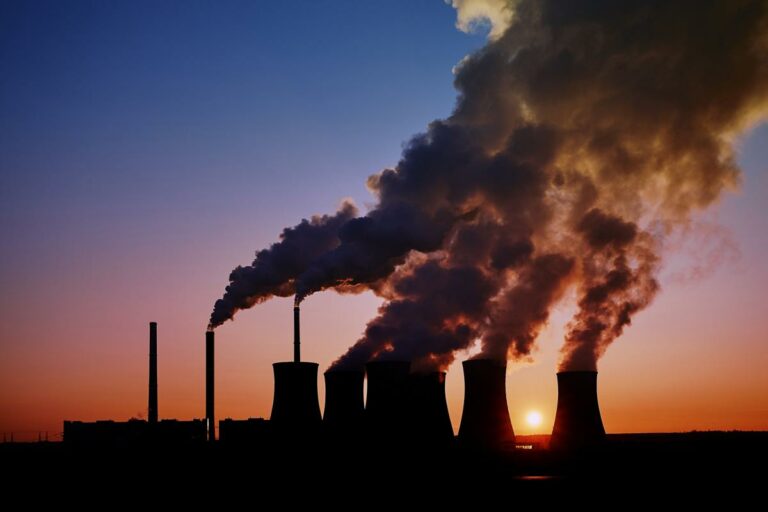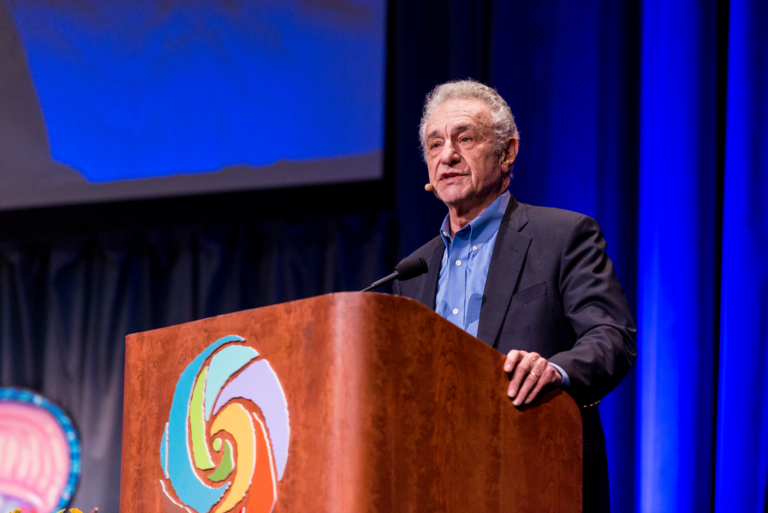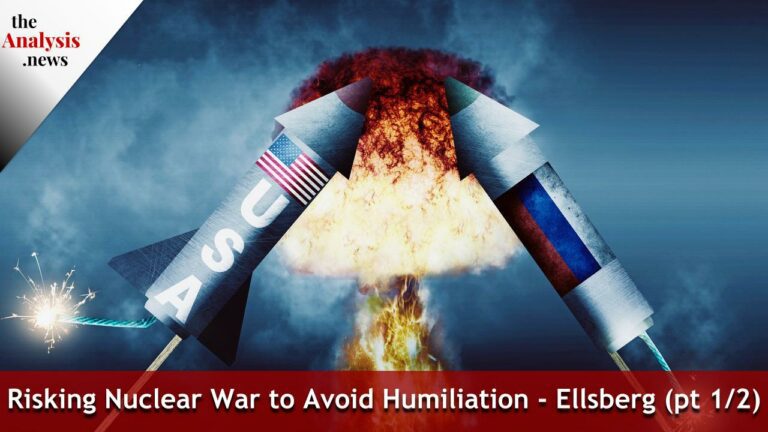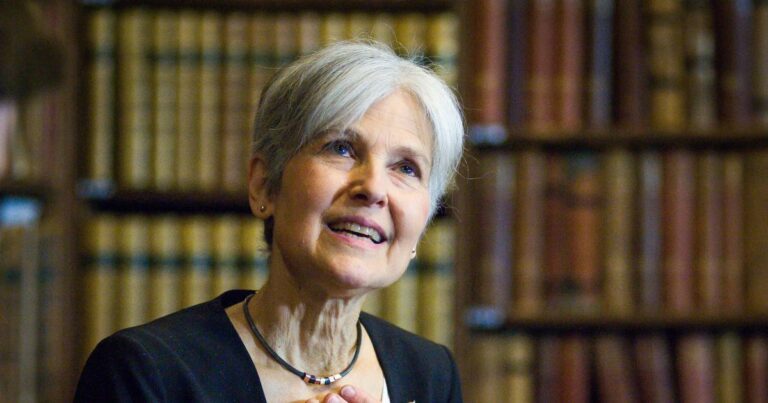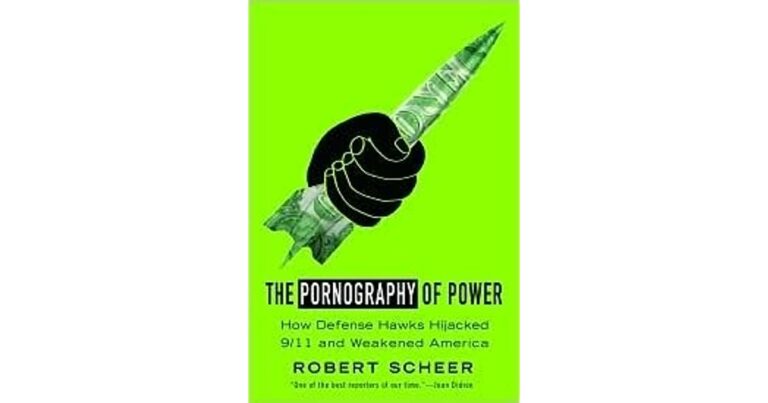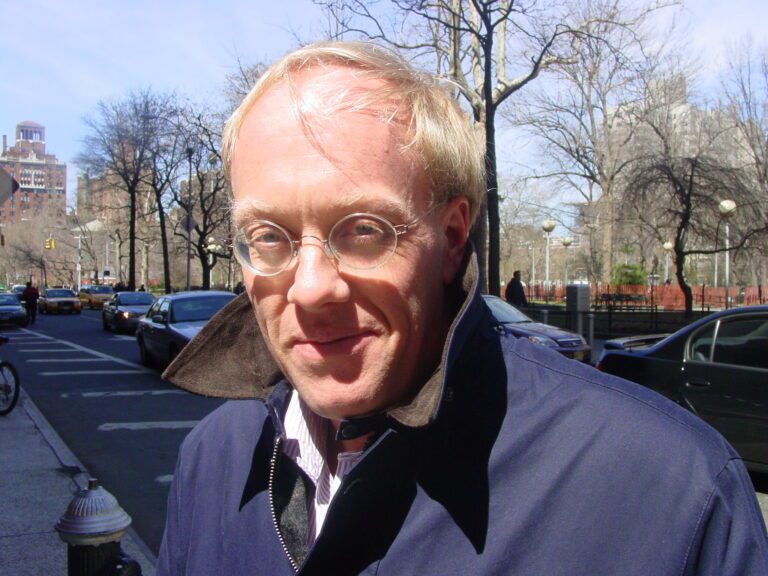This is an episode of Reality Asserts Itself, produced on November 22, 2013. In this episode of Reality Asserts Itself, Paul Jay and historian Peter Kuznick discuss whether or not JFK intended to withdraw from Vietnam before his assassination.
PAUL JAY, SENIOR EDITOR, TRNN: Welcome to The Real News Network. I’m Paul Jay. And welcome to Reality Asserts Itself.
November 22 is the 50th anniversary of the assassination of President John F. Kennedy. We’re going to take a look at the significance of his presidency, his accomplishments and/or lack thereof. And, of course, everything to do with that presidency is a matter of debate. Whether or not President Kennedy actually wanted to pull out of Vietnam or not, and of course the assassination itself, has been the subject of hundreds of books with competing theories. But we’re going to try and take a big-picture look at just what Kennedy represented in terms of the flow of American post-World War II history.
Now joining us to kick off our discussion about Kennedy is Peter Kuznick. He’s a professor of history and director of the Nuclear Studies Institute at American University. He’s cowriter of the ten-part Showtime series called Untold History of the United States with Oliver Stone.
Thanks very much for joining us, Peter.
PETER KUZNICK, AUTHOR AND HISTORIAN, AMERICAN UNIVERSITY: Good to be here, Paul.
JAY: So we’ll get into some of the more controversial pieces of the Kennedy presidency, like, probably pretty soon as we get into this. But start off. Set the stage. When Kennedy becomes president, what does the world look like?
KUZNICK: The world in January 1961 was a very tense and dangerous place. The Eisenhower presidency had created this enormous military-industrial complex. Most people think–the thing that many people know about Eisenhower is his farewell address, in which he warns about the military-industrial complex. What they don’t realize was that he was the one who did more than anybody else to create it. When Eisenhower took office, the United States had a little over 1,000 nuclear weapons. When Eisenhower left office, we have 23,000 nuclear weapons. By the time his budgeting cycle was finished we had 30,000 nuclear weapons. Eisenhower had helped create a very dangerous world with many fingers on the nuclear button.
JAY: Yeah. Actually, if you read the whole Eisenhower quote about beware of the dangers of the military-industrial complex, it’s not that he says that we shouldn’t have a military-industrial complex–he in fact quite explicitly says there should be one–but just beware, because they’re going to have an inordinate amount of political power as a result of all this.
KUZNICK: Yes. Eisenhower understood how dangerous it was. Eisenhower oversaw the creation of the first SIOP, strategic integrated operations plan, and he got very scared when he was briefed on it. What the Joint Chiefs informed Dan Ellsberg when Bundy asked Ellsberg to find out the details, it told Ellsberg that within 24 hours of a war against the Soviet Union, we were going to shoot off our entire nuclear arsenal. They expected the consequences to be between 600 million and 650 million people dead from America’s weapons alone. And so that was terrifying. It was terrifying to Eisenhower. He understood what he had created and the risks and dangers involved in this. When Eisenhower took office, nuclear weapons were our last resort. When he leaves, they are our first resort. When he takes office, there’s one finger on the nuclear button. When he leaves, there’s dozens, maybe scores of fingers on the nuclear button. And with this massive buildup on nuclear weapons, Eisenhower understood what he was passing on. This could have been to Kennedy, it could have been to Nixon. He did not know at the time.
So it was a very dangerous world. It was also a world of great tension in Berlin, great tension in other parts of the world. So it was a world that could have exploded–and almost did on several occasions.
The first major one, the first big involvement we have is with the Bay of Pigs in April ’61. And that’s a fiasco. Then Kennedy meets with–.
JAY: Just quickly, for viewers, younger viewers that don’t know what you’re talking about, give us a quick take on Bay of Pigs invasion.
KUZNICK: The United States under Eisenhower, we started to build up a force of Cuban counterrevolutionaries operating out of Miami, who in April invaded Cuba under the pretext that if they invaded, the Cuban people who supposedly hated Castro would rise up in rebellion and overthrow the Castro government.
JAY: The invasion’s under Kennedy’s watch, not Eisenhower.
KUZNICK: Say this again?
JAY: The invasion takes place under Kennedy.
KUZNICK: The invasion takes place under Kennedy, but it was planned initially under Eisenhower. Kennedy inherited it. Kennedy doubted the idea behind it, but he felt that as a young president he did not have the authority to overrule something that had been put in place by Eisenhower and by the generals.
It was a disastrous plan. Lemnitzer (the chairman of the Joint Chiefs) and the other generals and intelligence people assumed that once we sent that force in there, if they were in trouble, Kennedy would have no choice but to send in air support and ground forces to back them up. They met with Kennedy at midnight for three hours one night as the whole thing was unraveling down there, and they browbeat Kennedy into sending forces. Lemnitzer couldn’t believe that Kennedy would stand up to them and not send American support. Lemnitzer said afterwards that he was shocked, that this [incompr.] it was criminal on the part of Kennedy that he didn’t do that.
That was one of the important things to understand about Kennedy. Kennedy stood up to his generals and his intelligence people time after time after time. [incompr.] we have–what we wish we would have seen with Obama. Standing up to the military and the intelligence people Obama has not had the backbone to do. But Kennedy did repeatedly.
He did the same thing over Laos. They wanted to go in there and fight it out over Laos. Eisenhower had warned Kennedy that this is very likely going to happen. Kennedy refused to send the forces into Laos. The generals said they wanted to be able to use nuclear weapons if they needed them in Laos. Kennedy refused, and he accepted a neutralist solution in Laos, which is what Robert Kennedy later said they would have done, very likely, in Vietnam as well.
But these are things that go against the culture of the military, the Pentagon, and the intelligence community at the time, and Kennedy built up a lot of enmity as a result.
After the Bay of Pigs, when the force was almost entirely killed or captured by the Cubans–and Kennedy admits that this is terrible in terms of what has happened. And diplomatically, around the world the United States’ stature has fallen dramatically almost overnight. Khrushchev said he had a lot of hope for Kennedy when Kennedy first took over, but by the time they meet in Vienna, Khrushchev is browbeating Kennedy, and he thinks that Kennedy obviously was somebody who was in way over his head was Khrushchev’s initial sense.
But in the aftermath of the Bay of Pigs, Kennedy learned some important lessons, and he starts talking about those Joint Chiefs sons of bitches and those CIA bastards, and he says, I’m going to scatter the CIA, I’m going to shatter the CIA into 1,000 pieces and scatter it in the wind. He puts the CIA operatives in each country under the head–the ambassador’s control. And then he fires the big three in the CIA, including Allen Dulles. He also shakes up the Joint Chiefs of Staff. So Kennedy immediately is giving the signal that he’s in charge, he’s the commander-in-chief, and he’s going to set the policy. And he starts [crosstalk]
JAY: But it’s important that, if I understand it correctly–and I know you think after the Cuban Missile Crisis he began to change his mind on things, and we’ll talk about that. But he, as the president, for the first while he is a very militant cold warrior. I think I saw a quote of Dean Rusk which says that he was practically fixated with trying to overthrow Castro in Cuba. Certainly some of the assassination attempts on Castro that took place initially, if I understand it correctly, Kennedy certainly knew and supported. He didn’t like them working with the mob and the mafia on this, which is–let me just say to our audience, this story goes so many layers and ripples. We’re going to have to just deal with some things kind of big-picture here. The literature on this is hundreds and probably thousands of books deep. At any rate, I mean, Kennedy wanted to overthrow Castro. He wasn’t–this was not something he was opposed to. He just didn’t like the way the CIA handled the Bay of Pigs invasion. Right?
KUZNICK: Kennedy was committed to overthrowing Castro. That’s right.
Kennedy was certainly a cold warrior, although he was not entirely a cold warrior. But in the essentials, you’re right. He was a cold warrior.
He had been very critical of British and French colonialism. He had traveled in Southeast Asia. He understood the way people in Southeast Asia hated the colonialists. So he always had a sense that the policy that the U.S. was pursuing there was problematic. But he didn’t challenge it initially and did embrace it.
And after Sputnik in 1957, Kennedy starts to talk about the missile gap, as do many of the other Democrats. So they become real cold warriors. And in 1960, during the election, in certain ways Kennedy is attacking Nixon from the right for letting Castro survive in Cuba and also letting the United States fall behind in terms of the missile gap. So in that sense Kennedy was certainly a staunch cold warrior, and I don’t disagree with that.
But Kennedy evolves in office. Kennedy sees what’s happening, he sees the kind of advice he’s getting, and he moves dramatically, in my opinion, after 1962, away from the Cold War.
JAY: Okay. Let me read you a few quotes of people who don’t agree with you, and then you’re going to have your chance to go at them. First of all, here’s someone who I know who’s generally your work–you respect, but you don’t agree with him on this. This is Andrew Bacevich. He writes in a book called Washington Rules:
“The abrupt termination of Camelot”–this is how people refer to the Kennedy administration–“did not bring down the curtain on some ambitious effort to reorient American statecraft. The Kennedy who embraced the strategy of overkill, sought to subvert the Cuban Revolution, and deepened the U.S. commitment to South Vietnam was continuing work that his predecessor had begun”–meaning Eisenhower. “When Lyndon Johnson replaced Kennedy in the Oval Office, the postwar tradition of American statecraft passed into the hands of yet another faithful steward.”
That Kennedy was a continuation of Eisenhower is his argument. And I’ll read some quotes a little later from Chomsky, who make the same argument.
KUZNICK: I used to–I agreed with Chomsky and Bacevich and others initially, until I began to look into this question much more deeply. And then what I found was that Kennedy’s views were evolving in terms of a broad range of issues. And if you look at any specific one, you don’t get the big picture.
And I think the culmination comes in his commencement address at American University. After Norman Cousins visits–well, it’s really–or we could say the turning point is the Cuban Missile Crisis. But you see signs of it even earlier in terms of not trusting the generals and not trusting the intelligence community.
But after the Cuban Missile Crisis, Kennedy learns a profound lesson. Khrushchev learns the same lesson. Despite all of their efforts to avoid a nuclear war and a confrontation between the two sides, they realize that crises like these cannot be managed, that crises cannot be controlled. And after that, Khrushchev sends an extraordinary letter to Kennedy in which he says, from this evil maybe some good can come. Both of our nations have felt the–our citizens have felt the flames of thermonuclear war. They understand what this means. We should now work together to remove every possible conflict that can lead to another crisis between our two nations. Khrushchev said we should even eliminate the military blocs, get rid of NATO and the Warsaw Pact. We should work together to end nuclear testing completely and roll back all of these conflicts between us and work together for a peaceful world.
Kennedy hesitated at first. He balked. But he realized–he said–and Norman Cousins goes over there and comes back and tells Kennedy that Khrushchev is sincere about this. Averill Harriman, who was a old hawk from way back, tells Kennedy that Khrushchev is sincere and he really wants to do what he’s talking about. And then Kennedy begins to reach out to Khrushchev as well.
And between the two of them, in the last months of Kennedy’s life, they are starting to try to tamp down all of these crises. And you look at the limited arms control treaty, it was the first nuclear treaty between the United States and the Soviet Union. The military was staunchly opposed to that. They were furious with Kennedy about this. Congressional mail was running 15-to-1 against this treaty. But Kennedy stood for it, he stood up for it, and he was able to get it passed. According to Ted Sorensen, nothing that Kennedy achieved in his presidency gave him as much gratification as the Nuclear Test Ban Treaty. Kennedy said that what he wants to do is sign another treaty, and then he’s going to go to the Soviet Union. He’ll be the first sitting American president to visit the Soviet Union. And he says, I’m going to be treated like a hero there. And that’s–that was his vision. Kennedy saw himself as a man of peace toward the end of his presidency. And I [incompr.] that possibility to achieve that.
JAY: Alright. Well, part of, I think, the counterargument goes that, yes, Kennedy saw the necessity of avoiding thermonuclear war and this kind of direct confrontation with the Soviet Union, but he also saw the national liberation movements of the world that were also heading towards socialism if they were victorious, and, of course, Vietnam being the most important example of that as something that had to be fought. And here’s another quote from Bacevich’s book:
“Kennedy saw South Vietnam as the crucial test case of flexible response, an opportunity to demonstrate that counterinsurgency and nation-building techniques could defeat communist-inspired ‘wars of national liberation’–that when it came to projecting power, the United States had at hand tools other than those offered by the CIA and SAC. With this in mind, the president
“• increased the U.S. military presence in South Vietnam from nine hundred to nearly seventeen thousand ‘advisers.’
“• eased restrictions on U.S. military personnel, authorizing those advisers to engage in combat operations … [including dumping] large quantities of defoliants such as Agent Orange on the Vietnamese countryside.
“• more than doubled the level of material support provided to the Army of the Republic of Vietnam….
“• did nothing in his public representations to refute claims made by others in his administration–Taylor and McNamara in the forefront–that South Vietnam represented a vital U.S. national security interest.”
And a little later I’ll quote Chomsky on this, but basically that Kennedy did see Vietnam as something that had to be won, even if, I think, no one can disagree with what you’re saying, that he did see the necessity of working out agreements and protocol to stop a direct nuclear confrontation with the Soviet Union. But the two are not mutually exclusive.
KUZNICK: No, but they’re part of a piece, because what I’m saying is that Kennedy’s worldview was evolving overall and Kennedy was seeing that conflict with the Soviet Union was not necessary. For example, you think about his signature initiative, which was the space race, and he said the Soviets had embarrassed the United States with all their achievements and their victories in the space race. And this more than almost anything else is what he’s identified with–landing a man on the moon and defeating the Soviets. But in the last year of his life, he was saying this is a waste for humanity to have this be a competition, going into space. He said, we and the Soviets should work together to put a man on the moon together, this is in the interests of all human beings, this should not be a competition between us. And that was the attitude that was evolving on most things.
If we look, for example, sure Bacevich is right that Kennedy begins embracing counterinsurgency. Kennedy had this fantasy about the Green Berets in the early part of his presidency. Kennedy did see Vietnam as a place we had to win in the early part of his presidency. Kennedy did build up forces in Vietnam. That’s all correct.
But what he’s missing there is that early on, Kennedy began to get evidence, get intelligence showing that Vietnam was not likely to be won under any circumstances. John Kenneth Galbraith was one of the first to come back with a report urging Kennedy to rethink the policy in Vietnam. Kennedy sends Harriman and Michael Forrestal, tells them to seize upon any moment to reduce our commitment in Vietnam. That’s in 1962. Mike Mansfield’s–Kennedy sends Mansfield to Vietnam. Mansfield comes back with a very pessimistic report. And Kennedy says to Kenny O’Donnell, he says, when Mansfield said this to me, I got angry, and then I got angry at myself because I was agreeing with him. But we have had similar kind of statements. I could go through a lot of them, but among those who said that Kennedy–what Kennedy said to them privately, at least.
Now, the problem is that Kennedy’s public statements would support the idea that he’s not going to flinch on Vietnam, that we are going to follow through and try to win. But privately he told people over and over again that I can’t pull out now, but if I’m reelected, I can pull out afterwards.
JAY: Well, in part two of this interview we’re going to look at some of the critique of Peter’s theory. People like Noam Chomsky say there’s actually no evidence in the internal or public record that Jack Kennedy actually did plan to pull out of Vietnam.
So please join us for part two of our interview with Peter Kuznick on Reality Asserts Itself on The Real News Network.
Never miss another story
Subscribe to theAnalysis.news – Newsletter
“Peter Kuznick is a professor of history and director of the award-winning Nuclear Studies Institute at American University and is currently serving his sixth three-year term as a distinguished lecturer with the Organization of American Historians. He has written extensively about science and politics, nuclear history, and Cold War culture.”



